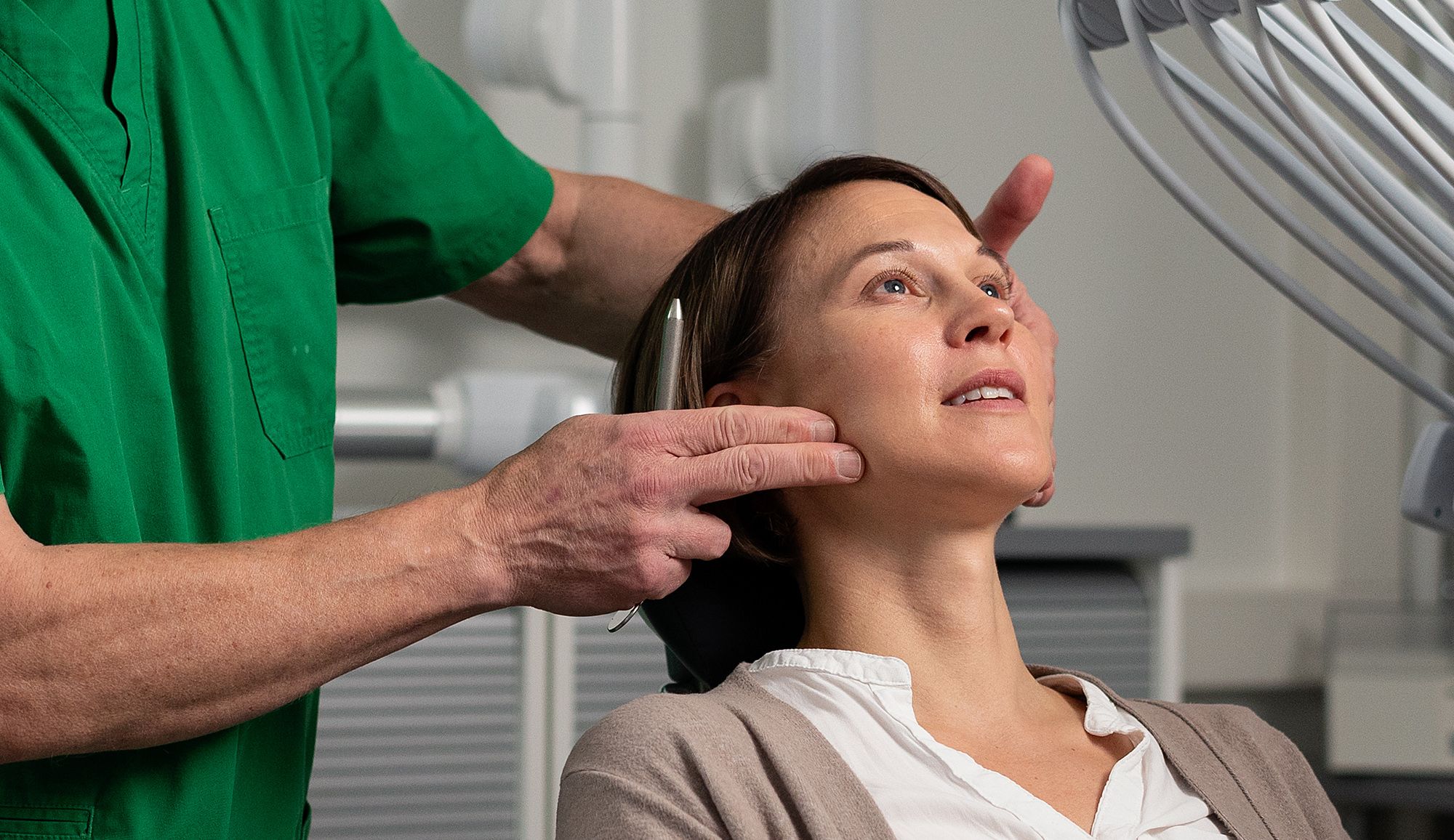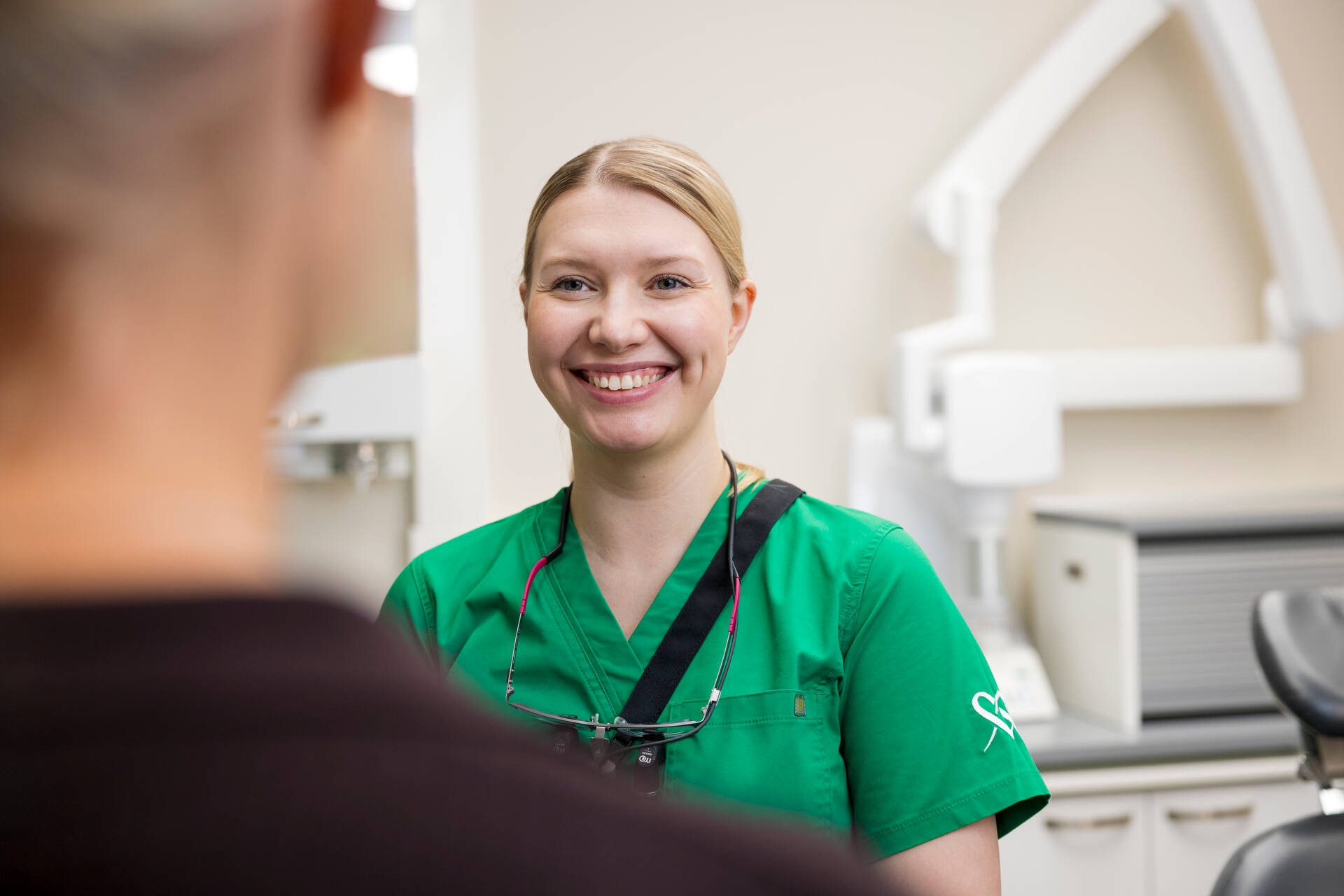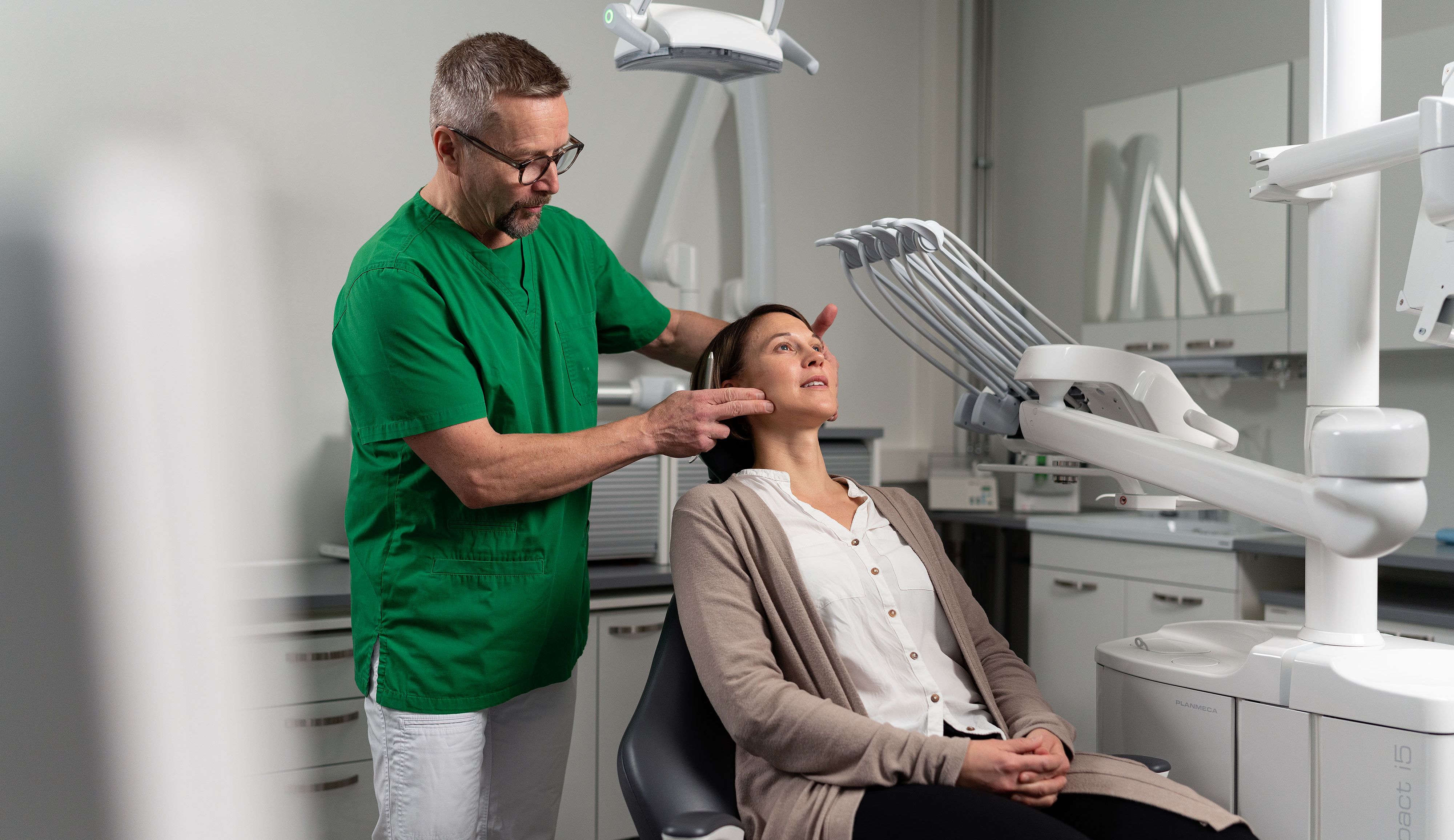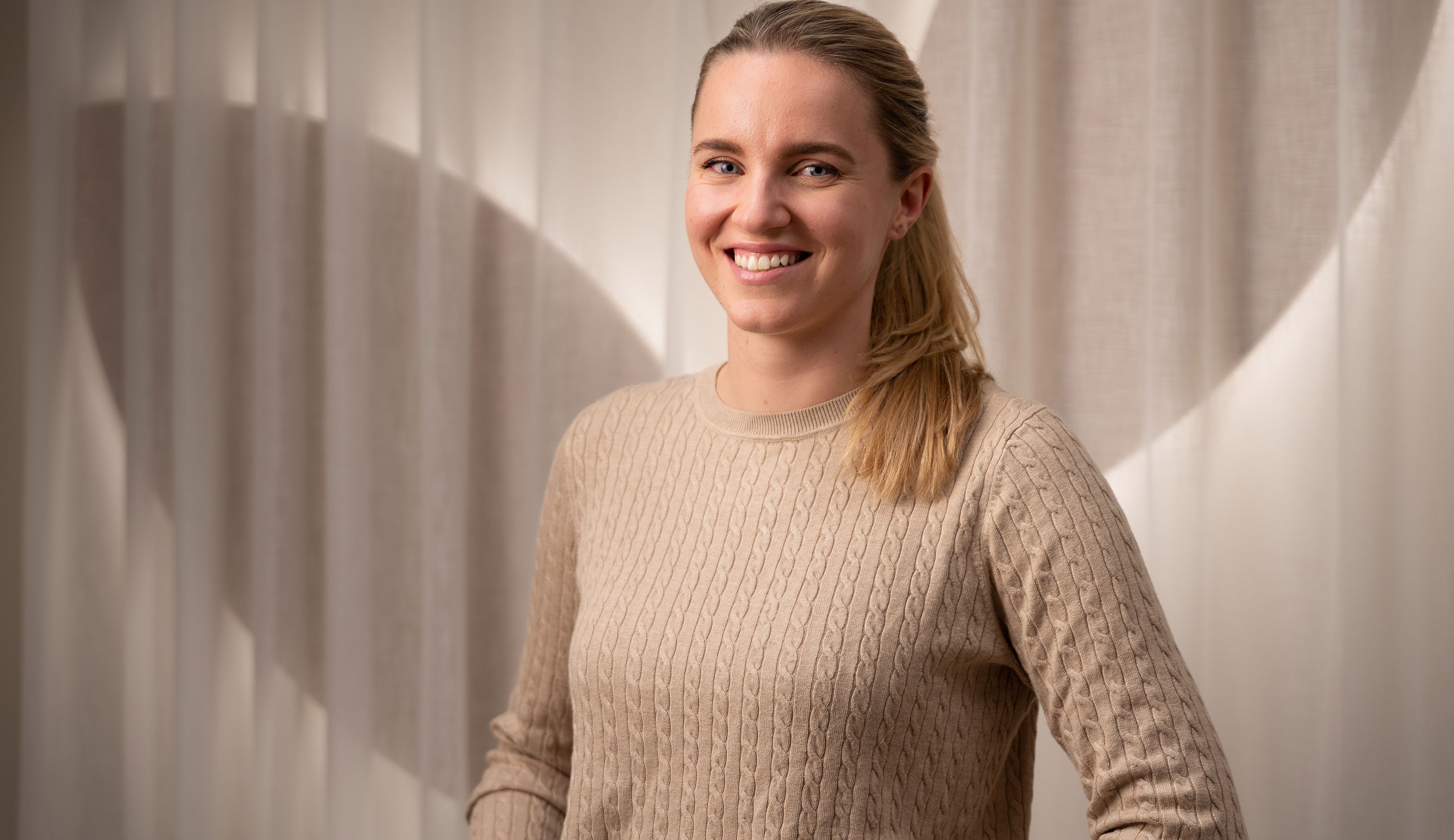
Occlusal splints or mouth guards protect the teeth
Pay flexibly with various payment methods. Learn more about the different payment and financing services we offer and choose the one that suits you best.
Outpatient clinic fee of a visit to the dentist is 37,90 € and for a dental hygienist visit is 27,90 €.
As of March 15, 2023, the polyclinic fee does not have to be paid after more than five reception visits during the calendar year. After the fifth payment, the polyclinic fee is 0 € for visits for the rest of the calendar year.
The Kanta fee (4 €) will be charged for visits to Hammas Mehiläinen starting from January 1, 2026.
If you visit our clinic and do not pay for your appointment using the available payment methods, we will send you an invoice for your appointment. The invoicing fee is 5,20 €.
If the procedure is booked with a specialist dentist, the prices are increased by 30 %.
Check out Hammas Mehiläinen's flexible payment methods.
| Service | Price estimate |
|---|---|
| Dental check-up | 56,00 € Without Kela reimbursement 86,00 € |
| Dental check-up for patients with dental fear | 93,00 € Without Kela reimbursement 123,00 € |
| Children and young people dental check-up The dental check-up performed by a dental specialist. Book a dental check-up for children and young people Prices 81,00–121,00 €, without Kela reimbursement 111,00–160,00 € | 81,00 € Without Kela reimbursement 111,00 € |
| Dental X-ray of the teeth and jaws | Mobile Benefit 90,00 € The price with a doctor's referral after Kela compensation is 79 €. 110,00 € Without Kela reimbursement 120,00 € |
| Tartar removal 30–45 minute appointment with a dental hygienist. Book an appointment for tartar removal Explore different payment methods Prices 122,00–169,00 €, without Kela reimbursement 142,00–199,00 € | from 122,00 € Without Kela reimbursement from 142,00 € |
| Tooth jewellery application The price does not include the price of tooth jewellery. | from 69,00 € No Kela reimbursement |
| Dental fillings 1–3 surfaces. Prices 97,00–216,00 €, without Kela reimbursement 107,00–236,00 € | from 97,00 € Without Kela reimbursement from 107,00 € |
| Ceramic filling of the tooth 1–3 surfaces. Explore different payment methods Prices 287,00–589,00 €, without Kela reimbursement 287,00–629,00 € | from 287,00 € Without Kela reimbursement from 287,00 € |
| Dental ceramic crown Laboratory costs are not included in the price estimate. Explore different payment methods Prices 627,00–812,00 € | from 627,00 € No Kela reimbursement |
| Chipped tooth Prices 97,00–216,00 €, without Kela reimbursement 107,00–236,00 € | from 97,00 € Without Kela reimbursement from 107,00 € |
| Tooth extraction Explore different payment methods Prices 113,00–768,00 €, without Kela reimbursement 123,00–808,00 € | from 113,00 € Without Kela reimbursement from 123,00 € |
| Tooth whitening Price estimate given at the free consultation appointment. Book an appointment for a free whitening consultation. Prices incl. VAT Prices 102,00–461,00 € | from 102,00 € No Kela reimbursement |
| Whitening consultation appointment Includes an individual price estimate for teeth whitening. Book an appointment for a whitening consultation. | Free No Kela reimbursement |
| Anaesthesia | from 42,00 € Without Kela reimbursement from 42,00 € |
| Irrevocable absence Prices 75,00–98,00 € | 75,00 € No Kela reimbursement |
| Initial assessment of sleep apnea Learn more about sleep apnea and book an appointment (in Finnish) | from 155,00 € Without Kela reimbursement from 185,00 € |
| Bite guard Includes clinical work and the bite guard. Prices 648,00–692,00 €, without Kela reimbursement 708,00–752,00 € | 648,00 € Without Kela reimbursement 708,00 € |
Specialist in the article

Revised 8/29/2023
Facts about occlusal splints
- Occlusal splints are used for the treatment of dysfunctions of the masticatory system.
- Occlusal splints help to relax the masticatory muscles, reduce tooth wear and prevent jaw pain.
- The dentist will prepare occlusal splints individually for each patient, and the treatment may also include other forms of treatment.
What is treated with mouth guards?
Mouth guards are used to treat dysfunctions of the masticatory system diagnosed by a dentist, such as muscle or joint disorders. Tooth grinding or bruxism can also be treated with mouth guards. Dysfunctions of the masticatory system may occur as:
- facial and neck-shoulder area muscle tension
- pain in the joints or muscles of the jaw or the masseter
- difficulty in opening your mouth
- sounds emanating from the temporomandibular joint
For whom are mouth guards suitable?
Mouth guard treatment is suitable for almost all adults suffering from dysfunctions of the masticatory system. However, mouth guard therapy may not be appropriate if you suffer from sleep apnoea, as a night guard may make the apnoea or snoring worse. In such case, special sleep apnoea mouth devices may be considered.
For children, the use of mouth guard treatment is recommended only under the supervision of a dental specialist specialised in orthodontic treatment. As the growing child's occlusion is developing, the mouth guard may adversely affect tooth development and jaw growth, which is why close monitoring of treatment is important.
Preparation of a mouth guard
The decision to initiate mouth guard treatment is made on the basis of the dentist's individual examination and diagnosis.
The dentist will take either digital 3D models or traditional models of your teeth, on the basis of which the dental laboratory prepares the mouth guard. At the next appointment, the dentist fits the mouth guard to the mouth and verifies its functionality.
Mouth guard treatment may include follow-up visits to check whether the desired outcome has been achieved. Depending on the severity of the dysfunction of the masticatory system, the treatment may need to be monitored for up to one year.
When are mouth guards used?
Mouth guards are usually used at night, when the masticatory system is usually active involuntary. However, mouth guards can also be used during the day as much as is desired and possible.
Massaging and stretching the masseter has been found to be beneficial in the treatment of dysfunctions of the masticatory system.
How long are mouth guards used?
The mouth guard is used as long as the symptoms of the dysfunction of the masticatory system occur. If the symptoms subside, the use of the guard can also be paused. If properly stored, the guard will remain operational for a long time. In some cases, the guard can get deformed and it will not sit in the mouth appropriately. If this is the case, you should see a dentist who can modify the guard to be operational again.
The dysfunction of the masticatory system cannot be treated with a mouth guard in all cases and further examination is sometimes required. Physiotherapy, acupuncture, medical treatment, voice therapy or cold therapy can be used alongside mouth guard treatment or on their own. Your active role is key to the improvement of the dysfunction.
Outpatient clinic fee of a visit to the dentist is 37,90 € and for a dental hygienist visit is 27,90 €.
As of March 15, 2023, the polyclinic fee does not have to be paid after more than five reception visits during the calendar year. After the fifth payment, the polyclinic fee is 0 € for visits for the rest of the calendar year.
The Kanta fee (4 €) will be charged for visits to Hammas Mehiläinen starting from January 1, 2026.
If you visit our clinic and do not pay for your appointment using the available payment methods, we will send you an invoice for your appointment. The invoicing fee is 5,20 €.
If the procedure is booked with a specialist dentist, the prices are increased by 30 %.
Check out Hammas Mehiläinen's flexible payment methods.
| Service | Price estimate |
|---|---|
| Dental check-up | 56,00 € Without Kela reimbursement 86,00 € |
| Dental check-up for patients with dental fear | 93,00 € Without Kela reimbursement 123,00 € |
| Children and young people dental check-up The dental check-up performed by a dental specialist. Book a dental check-up for children and young people Prices 81,00–121,00 €, without Kela reimbursement 111,00–160,00 € | 81,00 € Without Kela reimbursement 111,00 € |
| Dental X-ray of the teeth and jaws | Mobile Benefit 90,00 € The price with a doctor's referral after Kela compensation is 79 €. 110,00 € Without Kela reimbursement 120,00 € |
| Tartar removal 30–45 minute appointment with a dental hygienist. Book an appointment for tartar removal Explore different payment methods Prices 122,00–169,00 €, without Kela reimbursement 142,00–199,00 € | from 122,00 € Without Kela reimbursement from 142,00 € |
| Tooth jewellery application The price does not include the price of tooth jewellery. | from 69,00 € No Kela reimbursement |
| Dental fillings 1–3 surfaces. Prices 97,00–216,00 €, without Kela reimbursement 107,00–236,00 € | from 97,00 € Without Kela reimbursement from 107,00 € |
| Ceramic filling of the tooth 1–3 surfaces. Explore different payment methods Prices 287,00–589,00 €, without Kela reimbursement 287,00–629,00 € | from 287,00 € Without Kela reimbursement from 287,00 € |
| Dental ceramic crown Laboratory costs are not included in the price estimate. Explore different payment methods Prices 627,00–812,00 € | from 627,00 € No Kela reimbursement |
| Chipped tooth Prices 97,00–216,00 €, without Kela reimbursement 107,00–236,00 € | from 97,00 € Without Kela reimbursement from 107,00 € |
| Tooth extraction Explore different payment methods Prices 113,00–768,00 €, without Kela reimbursement 123,00–808,00 € | from 113,00 € Without Kela reimbursement from 123,00 € |
| Tooth whitening Price estimate given at the free consultation appointment. Book an appointment for a free whitening consultation. Prices incl. VAT Prices 102,00–461,00 € | from 102,00 € No Kela reimbursement |
| Whitening consultation appointment Includes an individual price estimate for teeth whitening. Book an appointment for a whitening consultation. | Free No Kela reimbursement |
| Anaesthesia | from 42,00 € Without Kela reimbursement from 42,00 € |
| Irrevocable absence Prices 75,00–98,00 € | 75,00 € No Kela reimbursement |
| Initial assessment of sleep apnea Learn more about sleep apnea and book an appointment (in Finnish) | from 155,00 € Without Kela reimbursement from 185,00 € |
| Bite guard Includes clinical work and the bite guard. Prices 648,00–692,00 €, without Kela reimbursement 708,00–752,00 € | 648,00 € Without Kela reimbursement 708,00 € |
Other related services
A dental implant replaces
Specialist dentist consultation and planning of further treatment.
Ceramic CEREC filling
More durable than conventional filling materials and a more aesthetic result.
Ceramic fillings
Modern and aesthetic ways to repair damaged teeth.
Clear aligner treatment with Invisalign aligners
Dentist consultation visit and selection of the Invisalign treatment method.
Cosmetic dental care
Can be used to alter the appearance of teeth and fix functional issues.
Dental X-ray
An important part of oral health care and an effective way to reveal oral diseases that the eye cannot detect.
Dental check-up
Assessment of oral and dental health and recommendations for further treatment.
Dental check-up for children and young people
Specialist dental check-up visit for children and adolescents.
Dental cone beam imaging
Provides highly accurate three-dimensional information on dental and jaw structures.
Dental fear
Non-urgent consultation with a dentist specialized in treating patients with dental anxiety.
Dental fillings
Filling a tooth involves removing decayed tooth tissue and replacing it with a filling material.
Dental hygienist
Provides individual advice for tending to your oral health.
Dental laminates or veneers
Can be used to correct colour defects, straighten individual teeth on the dental arch without orthodontic treatment.
Dental specialists
Are dentists who are specialised in one of the disciplines of dentistry. Specialist dentist consultation.
Dental staining removal
Dental staining removal by a dental hygienist, including soda cleaning.
Dental treatment under general anaesthesia
The most common reason for performing dental treatment under general anaesthesia is dental fear.
Dentist
Performs oral health examinations and treats oral diseases and other problems.
Dentures or false teeth
Assessment and planning of further treatment by a specialist in prosthodontics.
Emergency dental care
Emergency visit for sudden toothache, accident or other acute symptoms.
Laser teeth whitening
A gel is applied to the surface of the teeth and the effect is enhanced by light.
Massage of masticatory muscles
The massage of masticatory muscles alleviates pain in the head and jaw area.
Oral surgery
The examination and surgical treatment of the masticatory system and related tissues, diseases, and injuries.
Orthodontic treatment
Specialist dentist consultation to assess the need for orthodontic treatment.
Root canal treatment
The dentist treats an infected pulp of a tooth.
Sleep apnoea oral appliance
A treatment especially for mild sleep apnoea.
Tartar removal
Removal of tartar performed by a dental hygienist, including soda cleaning.
Teeth whitening
The safest and best teeth whitening is performed by a dental hygienist or dentist.
Tooth extraction
Sometimes, a tooth is in such bad condition that it cannot be saved.
Tooth jewellery application
A dental hygienist applies tooth jewellery safely and durably.
White Spot treatment
Fading or removal of tooth discolorations.
Whitening consultation (free)
The purpose of the consultation is to identify a possible need for treatment.
Wisdom tooth extraction
Wisdom teeth usually cause problems because there is not enough space for them to erupt.
Frequently asked questions
The time it takes to achieve results is individual and depends on the type and severity of the dysfunction of the masticatory system. The results of treatment depend on the severity of the dysfunction of the masticatory system. In the best case scenario, mouth guard treatment is already effective in a couple of weeks. In more difficult cases, it can take much longer to achieve results. The more demanding the baseline situation is, the more important it is for the dentist to monitor the progress and effect of the treatment.
Occlusal splints are prepared on the basis of an examination of the masticatory system performed by a dentist. The dentist takes exact models of your teeth and sends them to the dental laboratory, which prepares the occlusal splints.
Occlusal splints are prepared on the basis of an examination of the masticatory system performed by a dentist. The dentist takes exact models of your teeth and sends them to the dental laboratory, which prepares the occlusal splints.
The required treatment time is individual. In some cases, occlusal splints are only used at night, while in others, they can be used throughout the day. The dentist will determine the appropriate treatment period and the need for follow-up.
The price of mouth guard treatment consists of the work performed by the dentist and the laboratory. The price depends on whether the treatment is carried out by a dentist or by a dental specialist specialised in occlusal physiology.


